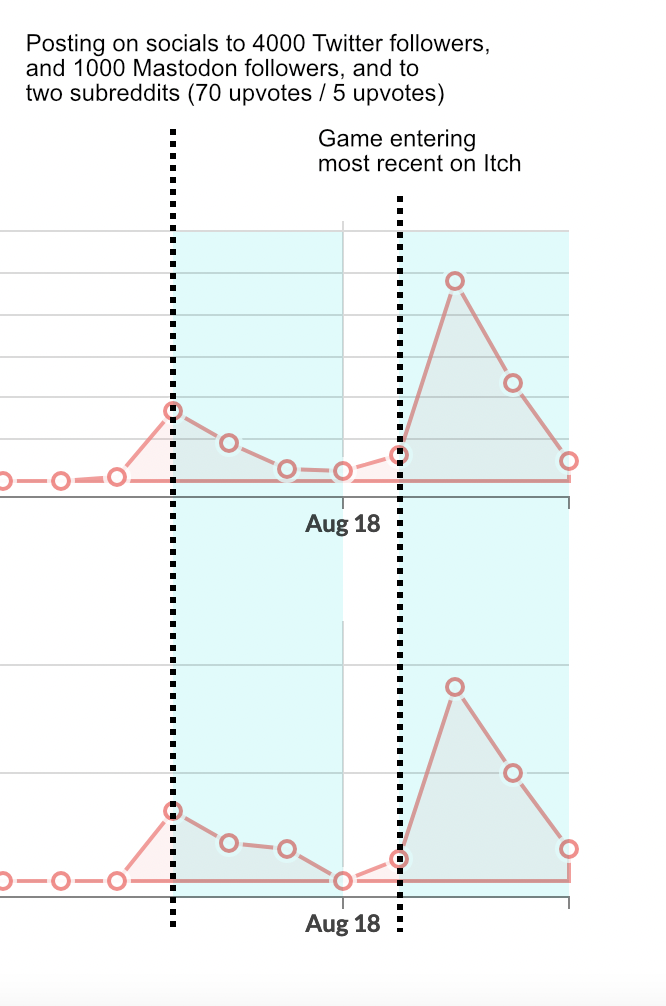I just released my game The Cluster yesterday, meaning:
- I removed the "Disable new downloads & purchases" checkmark.
- I changed the release status from "In development" to "Released".
For a while the game did not show up when I searched for its name, but today it just got indexed and does show up when searching.
However, on the "Most Recent" page it doesn't show up at the top, nor together with games released one day ago. Instead it's way down with games released 39 days ago. That was the day I made the game's page public, but people couldn't download it back then and the game's status was "in development".
So, do I understand right, that if a game has its page made public way before the game is actually released, the game will never be at the top of the "Most Recent" page (and forgo its chance with the "New & Popular" page too). Instead, once it's indexed, the game will pop into existence way down on the "Most Recent" page and never at any point be anywhere near the top?
This logic seems completely broken. Especially since Steam has conditioned developers to ensure their page is public and visible well before the release of their game (in fact this is a requirement). If you do the same on Itch, it will torpedo your chances of getting on the front page listings.
What is the reasoning behind this logic? It must be a bug?
The only reasonable way for things to work is that "Most Recent" (and any other listings using recency as input) would use the time of indexing for determining how "recent" something is. That's the only way all games would get their moment at the top of the lists. Basing "Most Recent" on a time at which the game was not indexed at all just makes no sense.


